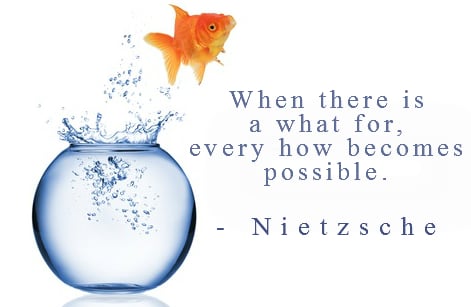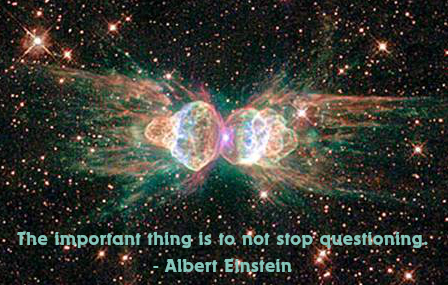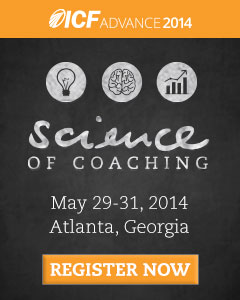
When I was a coaching student, my classmates and I were told it was okay to practice coaching even before we graduated, because "Coaching can't hurt anyone."
But the Elliot Rodger massacre counters that advice with a stark reality: "Coaching" doesn't cure mental illness, but it can and does hurt people when delivered by unknowledgeable or unscrupulous "coaches". Sometimes in spectacular ways.
The thinking behind the advice I got in coaching school was that coaches don't work with vulnerable populations, or in crisis situations, and that our clients are high-functioners who are responsible for their own choices. If the coach is ethical and is getting good training, and the client isn't mentally ill, then this theory works well. By the way, this is also why coaching isn't a regulated profession.
Coaching is unregulated, so buyers must be extra careful.
Reportedly, Rodger's parents did everything they could to give him a good upbringing and tried to help him with his emotional problems by getting him therapists and life coaches. He doesn't sound at all like a high-functioner to me, so most likely he was never a good candidate for coaching. His obsession with his perceived victimhood suggests something seriously wrong. 
That doesn't necessarily mean Rodger was harmed by his life coaches, but apparently he also explored another type of "coaching": the Pick-Up-Artist Coach (such as the guy to the right), who left Rodger feeling more frustrated than ever. The "coach" in the picture, and his website, look so creepy to me that I would call into question the mental health of anyone who hired him (or worse, slept with him).
Then there's the guy, below, who according to Slate and Jezebel, SPAMMED Rodger's YouTube channel with ads for his Dating Coach business. He claims his products could have saved lives!

That's one of the many ways over-hyped coaching harms coaching clients: the marketing, itself, over-promises and misleads potential clients, while pretending the coach just wants to help. People with common sense often see through the sham. But not always.
I've known some very smart cookies who've been taken in by scam artists posing as coaches. Their sole purpose is to empty clients' bank accounts and max out their credit with ever more personal and exclusive "coaching programs". I've known more than one coaching client who lost their house, as a result.
And not every harmful coach is a scam artist. Some are well-meaning, but operate on false beliefs and methods that can leave a client dazed and confused.
Apparently Rodger tried learning "game", as PUA (pick-up-artist) Coaches call it, and it didn't help him with women. Then he join a PUA hate site.
Therapists didn't stop Rodger from going on a killing rampage, so it's not fair to blame the coaches that worked with him, except for this: ethical coaches know they don't have tools to overcome mental illness and even if they can't diagnose illness, they can observe whether or not they are helping and send a sick client to the appropriate professionals.
Here are 10 more ways over-hyped coaching, scam artists, and untrained coaches can harm their coaching clients.
1. Over-hyped coaching often encourages people to focus on false goals, such as becoming millionaires. Everyone wants more money, or at least thinks they do, so get-rich-quick schemes are always popular with scam artists. These days "spiritual" get-rich-quick schemes are especially in vogue. "Coaches" who promise wealth are one of the most likely groups to be preying upon unsuspecting clients. Sex is also a big seller.
2. The fact that most people don't know what coaching is, inspires nefarious people to call themselves coaches. "Coaches" are sometimes scam artists in sheeps' clothing. That includes an alarming number of spirit-based coaches.
3. Well-meaning (or not so well-meaning) Law of Attraction coaches may encourage overly extreme optimism, which can mimic bipolar mania, which tends to be followed by failure, including loss of money and disappointment. Then the client is told they are "doing it" wrong, that they must buy a platinum program to learn LOA better, which then leads to further failure and disillusionment. When the client finally accepts that the process doesn’t work for them, they may sink into depression. Manic Depression is the old name for biplor disorder. Really bad coaching encourages manic-depressive extremes.
4. Too many coaches are only interested in grandiose goals, when in some cases, more modest goals can transform a client's life. To paraphrase the old theater saying, "There are no small goals; only small coaches."
5. Confused coaches often expect to completely change a person’s mindset instantly, when in reality, permanently changing one’s thinking takes time and consistent effort. Sometimes the most successful coaching sessions merely open the possibility that change could happen.
6. Misguided coaches may over-emphasize environment and under-emphasize action. I was trained this way and environment is quite powerful, but coaching clients aren't passive creatures. They relearn how to be in the world by taking action and observing the results. Action trumps environment. Just ask Oprah Winfrey.
7. Over-hyped coaching promises outrageous success ("Make quantum leaps!", "Millions of dollars the easy way!", "Get beautiful women to sleep with you!", "Attract everything you want just by thinking about it!"), missing the subtle possibilities that are genuinely transformative.
8. Fake coaches focus primarily on advice-giving, which often is inappropriate for the client. Finding out the client's strengths, needs and values, helps them step into resourcefulness, which is almost always more valuable than advice.
9. Then there are the coaches who avoid any advice-giving at all, which can limit a client’s options. Effective coaches know when clients need more information. If they have it, and the best coaches have a lot of empowering information, they share it at the right times and in the right ways.
10. Finally, nefarious "coaches" make stuff up, instead of using tools that actually work. What kind of stuff do they make up? In the beginning, whatever the client wants to hear. Later, when the client has already sunk thousands into the coaching and is desperate to get some value out of it, scam-coaches tell the client whatever will make him or her spend some more money.
How do you avoid being harmed by bad coaching? There are plenty of good coaches. Only work with coaches who have pledged to uphold professional ethics, make sure your coach has been trained in evidence-based coaching, opt for a certified coach whenever possible, and never ever try to substitute coaching for therapy. Even those things won't absolutely guarantee a good coach, though. Also use your common sense. If your gut says to run, run!
Elliot Rodger was a tortured soul who believed he was a victim of injustice. One of Rodger's victims was Christopher Michael-Martinez. His father, Richard Martinez, believes his son is a victim of injustice, namely that current laws in the US make mass-murder more likely. His call to action, "Not One More", has spurred a movement to demand that lawmakers change the laws. Will it be effective? No one knows, but what we have currently is a travesty. If you'd like to send a message to your elected official in support of Martinez' movement, click here.





















.jpg) Apparently, the International Coach Federation (ICF) agrees with me that science is
Apparently, the International Coach Federation (ICF) agrees with me that science is
